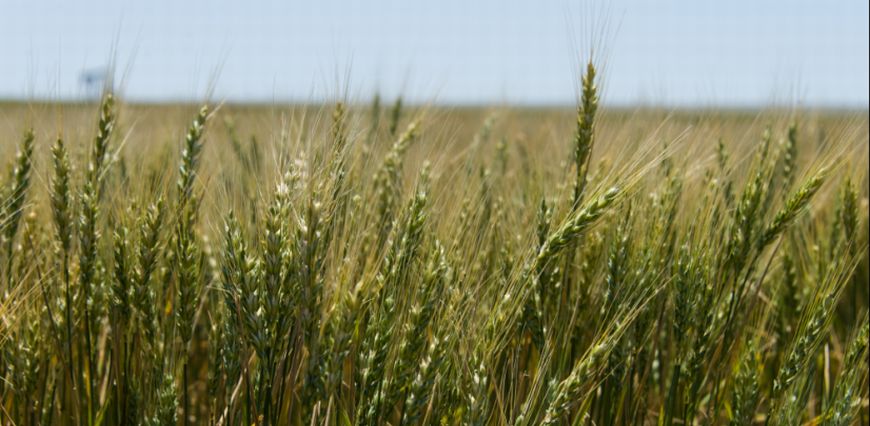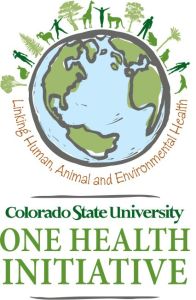
A scientist who researches how crop nutrients drop as carbon dioxide levels rise – signaling a serious global health threat to animals and people – will be a guest speaker on the topic of future global health at Colorado State University on Nov. 19.
Dr. Samuel Myers, a physician at Harvard Medical School and a senior research scientist in the Department of Environmental Health in the Harvard School of Public Health, will deliver the annual Distinguished Guest Lecture hosted by CSU’s College of Veterinary Medicine and Biomedical Sciences.

The talk starts at 3 p.m. Nov. 19 in the Lory Student Center Theatre. The event is free and open to the campus community.
“We invited Dr. Myers because of his expertise in global health, which is a focus for many CSU colleges,” said Dr. Sue VandeWoude, associate dean for research in the College of Veterinary Medicine and Biomedical Sciences. “His areas of research are particularly relevant to the work of our School of Global Environmental Sustainability and the CSU One Health Initiative, which is concerned with science at the intersection of human, animal and environmental health.”
Human impact on global health
Myers’ talk is titled “The Trajectory of Global Health in the 21st Century: Sharp Turns Ahead.” During his presentation, Myers will discuss his carbon dioxide study; the research was published in the journal Nature in June.
He also will highlight other signs that human impacts on the planet may have serious unintended and unexpected consequences on global health.
“Climate change is only one way in which we are rapidly and dramatically changing all of the natural systems on the planet,” Myers said in an interview. “Our thumbprints are all over Earth’s natural systems. And what’s deeply concerning is we have no idea what the implications of those changes are.”
He cites other human-induced changes: depletion of fisheries, decimation of forests, reductions in fresh water, and a 50 percent decline in vertebrate species over the last 40 years.
During his presentation, Myers also will discuss how declines in animal pollinators could reduce the global intake of micronutrients, including vitamin A and folate, and the consumption of important food groups; this, in turn, would likely increase disease in many countries.
“In the history of the human race, we’ve been co-inhabitants with other species on planet Earth, experiencing biophysical conditions that are the result of natural processes. But over the last several decades we stopped being co-inhabitants and took charge, pushing buttons and turning dials and becoming the defining force determining those biophysical conditions,” he said.
 “The more we turn those dials and alter the conditions that we, and all other life forms, have adapted to over millions of years, the more we’re going to encounter health impacts that may be surprising and very large. It’s probably going to be the biggest public health challenge we face in the coming centuries.”
“The more we turn those dials and alter the conditions that we, and all other life forms, have adapted to over millions of years, the more we’re going to encounter health impacts that may be surprising and very large. It’s probably going to be the biggest public health challenge we face in the coming centuries.”
Understanding what needs to be fixed
Myers cited CSU’s One Health Initiative as an example of the transdisciplinary research that is sorely needed, and he said more government funding is necessary to investigate the coming impacts.
“We need to understand what we’re trying to fix,” he said, noting that the world’s population has more than tripled since 1950 and economic growth has skyrocketed. “The scale of our impact on the planet has accelerated in a way that very few people understand. It’s urgent that we do something about it.”
The Distinguished Lectureship is an annual invited talk that showcases an outstanding scientist whose work interests many faculty members in the College of Veterinary Medicine and Biomedical Sciences. The speaker meets with faculty and students prior to the afternoon seminar and in other group sessions.
Myers’ visit is sponsored by the college and the CSU School of Global Environmental Sustainability.